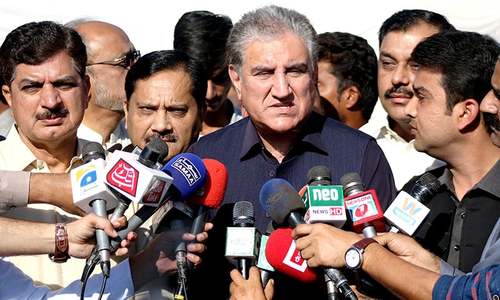THERE are legitimate concerns about the impact that investments coming into Pakistan under the CPEC umbrella will have on the country’s economy, but the recent intervention of US Assistant Secretary Alice Wells in this debate only serves to muddy the waters rather than spark a helpful conversation.
As a senior American diplomat, Ms Wells has sometimes been perceived as patronising towards Pakistan. Her remarks about CPEC, in which she tried to underscore the rising debt burden that Chinese investments are bringing to this country, can hardly be expected to ensure progress in the Pakistan-US relationship which itself has undergone a long period of tension.
Should the administration in Washington D.C. decide to act on Ms Wells’ words, far from yielding any dividends, it will only create more obstacles in bilateral ties — a hint of this emerged over the weekend when government ministers said that Pakistan would go ahead with CPEC.
As such, the best advice that can be offered after her talk at the Woodrow Wilson Centre, during which she raised her concerns about the CPEC project to widespread media coverage, is to let her words lie where they fell.
Action speaks louder than words. The concerns being voiced about the growing ties between China and Pakistan by a faction within the Trump administration need more than words before they can be considered credible.
Ms Wells should be asked what the current US administration is willing to do to help Pakistan meet its needs for infrastructure in a way that does not aggravate the country’s debt burden. If her response is not convincing, then her words will be overshadowed by the ability and willingness of Chinese capital to acquire long-term stakes in this country.
There is no doubt that a more detailed conversation is needed within Pakistan around the growing Chinese stakes in the economy. The repayment obligations are part of this debate. In addition, the direction in which these investments will take our economy in the future, particularly in vital areas such as agriculture that is the cradle of our food self-sufficiency, also needs a more sensitive discussion.
But this should first and foremost be a conversation among Pakistani stakeholders, including business leaders, political parties, the research community and the media.
The Trump administration will struggle to find a place in this debate since its input will inevitably be viewed through the prism of its escalating struggle to contain the emergence of China as a great power on the world stage — as epitomised by the ongoing trade war between the two.
It would be better if the bilateral dialogue between the US and Pakistan were to focus more on the tangible outcomes that both sides wish to see in Afghanistan, and leave out China and CPEC until such time that the US has something useful to contribute.
Published in Dawn, November 25th, 2019











































